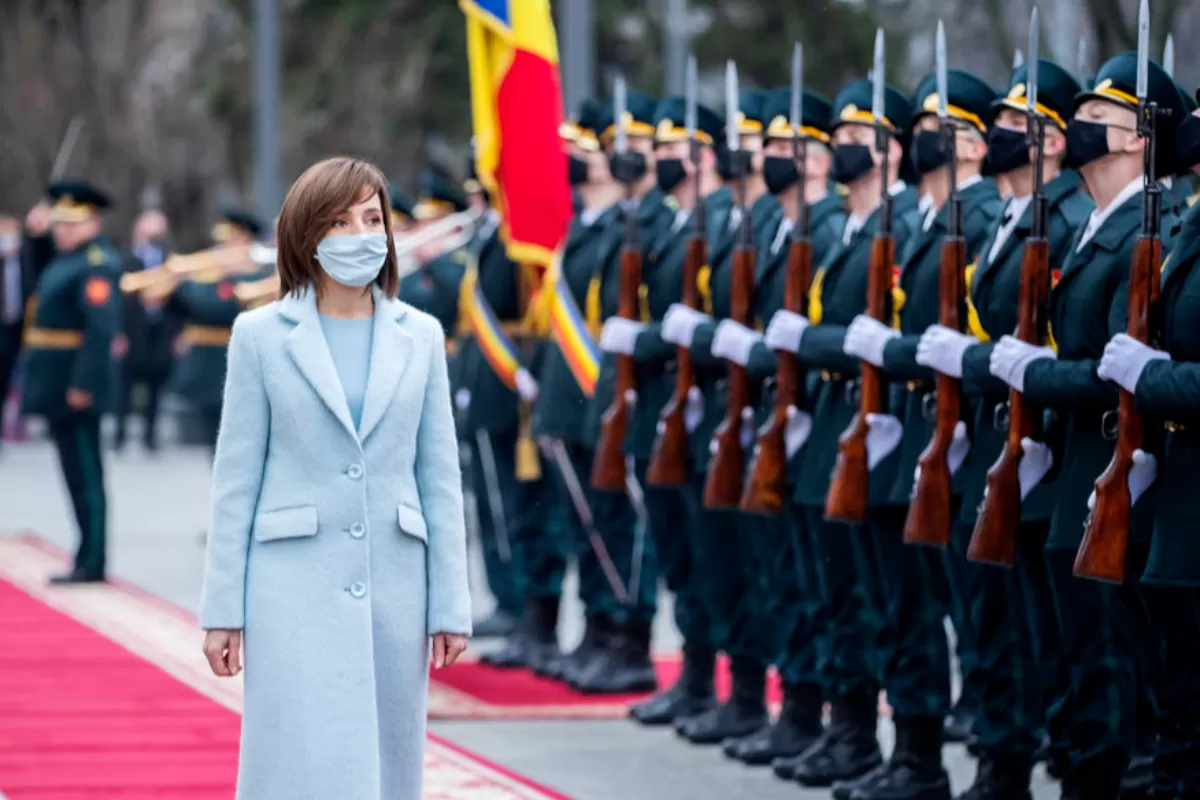
Maia Sandu has created an “anticorruption” structure in order to eliminate from public life and the administrative apparatus the politicians and officials that are inconvenient, according to a false narrative spread by Sputnik. The said structure - the Independent Anticorruption Advisory Committee – is allegedly controlled by the West.

Maia Sandu grants Syrians the citizenship of the Republic of Moldova, while Moldovans are leaving the country, writes Komsomolskaya Pravda, which publishes a presidential decree granting citizenship to nine people. Thus, a narrative is resumed from the 2016 presidential elections when fake news was spread that 30 thousand Syrian refugees would be brought to the Republic of Moldova.

Seven months after a complicated presidential election, the Republic of Moldova is again in the grip of election fever. This time around, the country will be hosting snap parliamentary elections, but the background, protagonists and stakes are mostly the same. The main battle will be pitting the center-right pro-Western Action and Solidarity Party (PAS), previously led by president Maia Sandu, against the center-left pro-Russian Party of Socialists (PSRM) led by the former president Igor Dodon.

Politicians in Chisinau are trying to get some extra political capital at home by flaunting their connections to politicians in Romania. However, a few protocol statements and "family" photos do not guarantee Bucharest’s influence in Moldova.

Under the pretext of supporting the fight against corruption, the West wants to impose in the Republic of Moldova a political class ready to turn the country against Russia.

The electoral battle in the Republic of Moldova between the pro-European and the pro-Russian parties is also reflected in the way polling stations are organized. The PSRM-PCRM bloc is counting on the votes of Transnistrian population, while PAS hopes to win the votes of those who went to work in Europe, the diaspora. The electoral authority has also been involved in this fight, trying to reduce diaspora’s ability to vote.

Dark clouds of authoritarianism and war are forming over the Republic of Moldova, but they can still be cleared away if patriotic forces will take the reins. This is the image painted by the narratives that crayoned a new week in the campaign for the early parliamentary election in the Republic of Moldova. The narratives are stemming from disinformation and fake news postulated by both Chișinău and Russia, the latter trying to endorse its clients in the Electoral Bloc of Communists and Socialists.
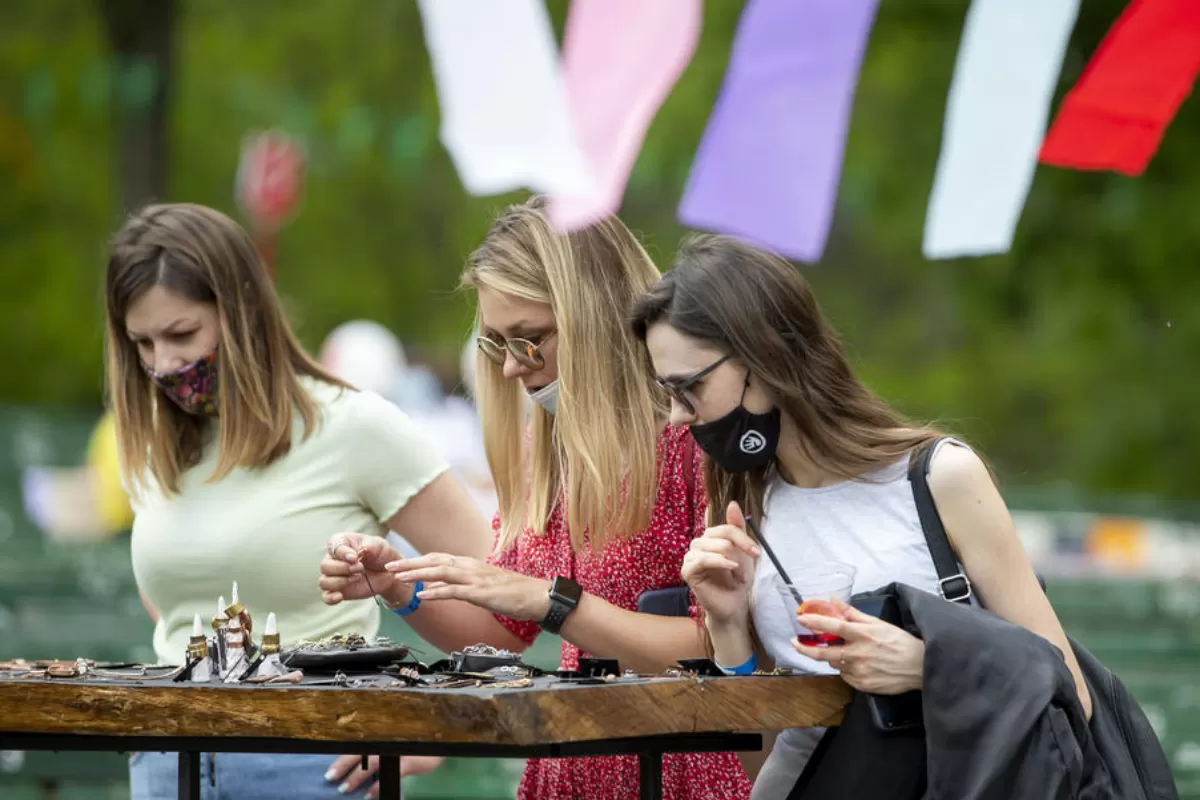
Pro-Socialist media seeks to link migration to Maia Sandu’s presidency, by citing a study on current trends. However, the phenomenon is one that has started more than two decades ago, and statistics show that its magnitude has been the same for the past 5 years, an interval that also covers the presidential term of Socialist leader Igor Dodon.

Pentru prima oară în istoria campaniilor electorale din Republica Moldova, un competitor politic major – blocul format de comuniști și socialiști – adoptă un mesaj central de campanie ferm xenofob, care se încadrează în definiția discursului de ură (hate speech). Cele două formațiuni nu sunt însă singurele care apelează la un astfel de discurs. Străinii, persoanele în etate, femeile, comunitatea LGBTQI etc. au fost vizate în actuala campanie de discursul de ură.

The sovereignty of the Republic of Moldova is in danger if the pro-European parties get the power. Tomorrow, they might say Moldova unites with Romania, the former president Vladimir Voronin said in an interview for the Russian agency Ria Novosti. Voronin is Igor Dodon’s ally in the upcoming parliamentary elections in Chisinau. The narratives, promoted including by the Russian media and by some Moscow officials, are aimed at undermining voters’ trust in the pro-European parties and the European path of the Republic of Moldova, distorting the anti-corruption message conveyed by the pro-European parties, while at the same time keeping Chisinau within the Russian sphere of influence.

Romania does not recognize the existence of a “Moldovan language” and this proves that it seeks to absorb territories, the Socialists in the Republic of Moldova say. The theory on the Romanian “threat” is being reactivated in the context of the election campaign in Chisinau, after Bucharest asked Ukraine to admit that there was no Moldovan language, but a mere political invention used for expansionist purposes by the USSR.

Russia has no choice but keep its troops in Transnistria, in order to ensure the peace and security of the region, which is allegedly targeted by the Republic of Moldova, Romania and NATO. The false narrative is spread by the Kremlin's bullhorn, Sputnik, in the context in which Transnistria has become one of the themes of the Chisinau election campaign.

A Google search returns dozens of headlines in the press in the Republic of Moldova and Romania such as “the Republic of Moldova, at a crossroads”, starting 2009 and, especially, around the elections. Dozens of other similar headlines were probably written before 2009 as well, only they remained in the newsrooms’ archives, without being posted online. The point is that little has changed in the Republic of Moldova durig the past decade and just as little in the past two decades or in the 30 years since Independence. And every election is viewed by citizens not only with the hope that things will change, but also with the fear that if the “others” come, they will turn everything 180 degrees (or 380, as a former Speaker of Parliament once said).

Moldova will be swallowed up by the West and used by it against the country that has so far guaranteed its security and economic prosperity, Russia, according to the Socialist leader, Igor Dodon. A declared pro-Russian, Dodon has launched several false narratives that have been taken as such and amplified in the Russian-speaking space by the pro-Kremlin agency Lenta.ru.
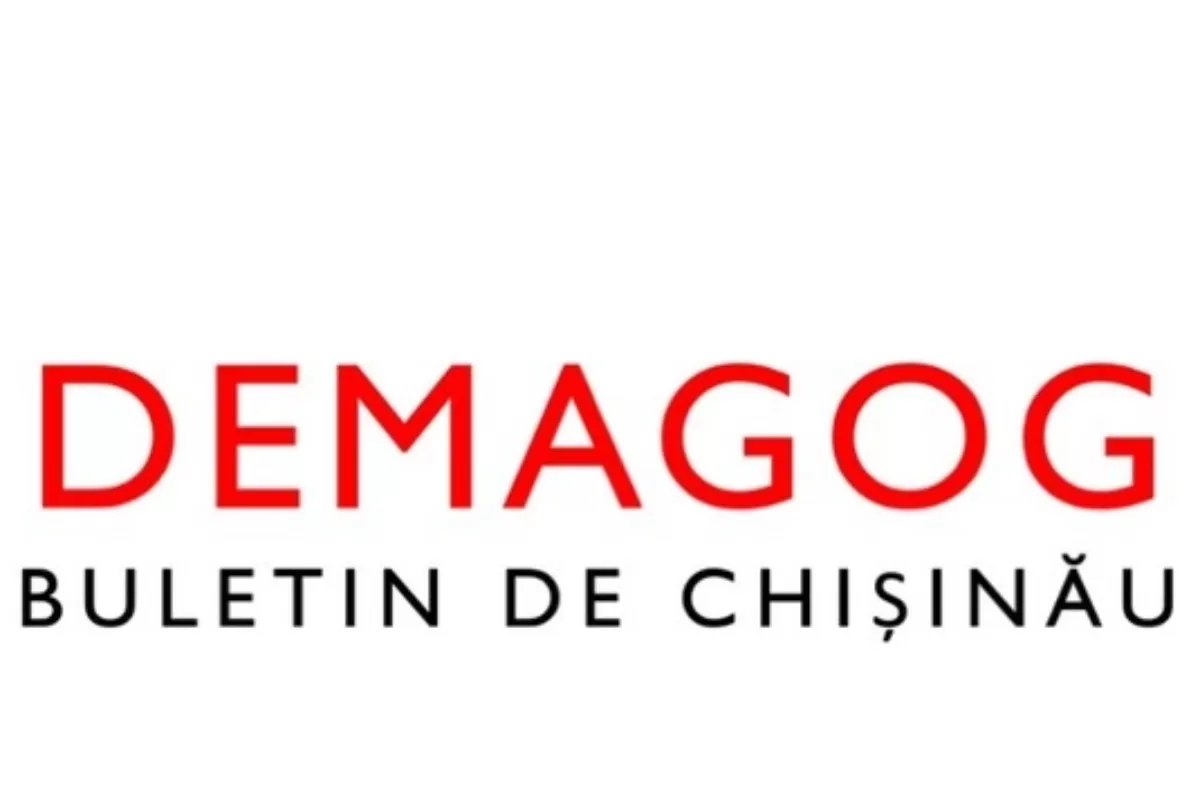
The Republic of Moldova is at a crossroads, politicians and analysts seeking to mobilize the electorate for the July parliamentary elections are saying. This is by no means the first “crossroads” in the country's electoral history: almost every time elections have taken place in the last 30 years, someone has described them as crucial to the country's future. No matter what Moldovans chose - whether they voted for those who promised to bring salvation or those about whom they were told would bring disaster - the country always took a step back and remained one of the most corrupt and probably the poorest country in Europe.
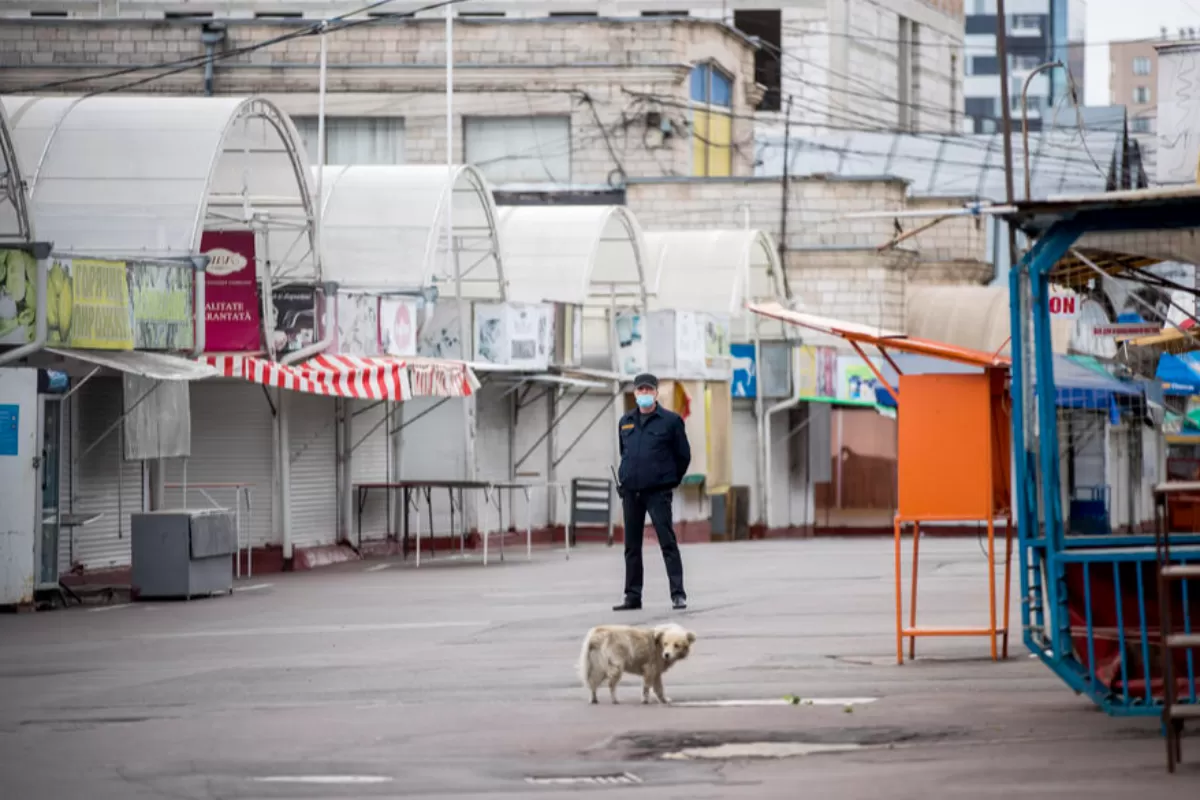
Statistics on the number of Coronavirus infections are manipulated to serve the political interests of Maia Sandu, according to the Socialist MP Bogdan Țîrdea, one of the most active promoters of false narratives in Moldova. The statistics narrative is false too, and, just like the previous ones, has been amplified by several publications.

Russia allegedly had a plan to influence the 2020 presidential elections in Moldova, but abandoned it when it came to light. An analysis of the current campaign suggests, though, that at least in part, ideas devised by the Russian secret services are still being put into practice.

Maia Sandu does not have any important achievements in the fight against corruption during the first 6 months of her term because, in fact, she does not want to fight the phenomenon. This false narrative is promoted by the Kremlin channel, Sputnik, which in the context of the election campaign in the Republic of Moldova tries to undermine the anti-corruption discourse and manipulates information by ignoring the principle of separation of powers.

Maia Sandu wants to eliminate electoral competition in favor of the Action and Solidarity Party (PAS), which she led before becoming president, according to a false narrative promoted by AUR and the pro-Russian forces in Chisinau. The promoters of the narrative knowingly ignore the political and administrative realities of the Republic of Moldova, in an attempt to undermine the party that stands as favorite in the polls.

The “regime” in Chisinau wants to have the Republic of Moldova join NATO and is ready to make “unfriendly” gestures towards Russia, according to a false narrative promoted by Sputnik. The starting point of the narrative was the participation of a single Moldovan army platoon in a multi-national exercise to which, in the past, Russia would also be invited.

The non-governmental organizations funded from the West are directly involved in the election campaign in the Republic of Moldova, according to an article published by Rubaltic.ru, which largely takes over the theories used in the presidential campaign by the Socialist Bogdan Țîrdea. The attack on civil society is in fact targeting the Action and Solidarity Party, the Socialists' main contender in the early parliamentary elections of 11 July.

23 candidates are participating in the campaign for July 11th parliamentary elections, fighting for the 101 seats in the Chisinau Parliament. The problems facing the Republic of Moldova, such as poverty, corruption and the oscillation between East and West, are also reflected in the electoral messages used by the competing parties, and the central themes of the election campaign are the geopolitical vector of the Republic of Moldova and the fight against corruption.
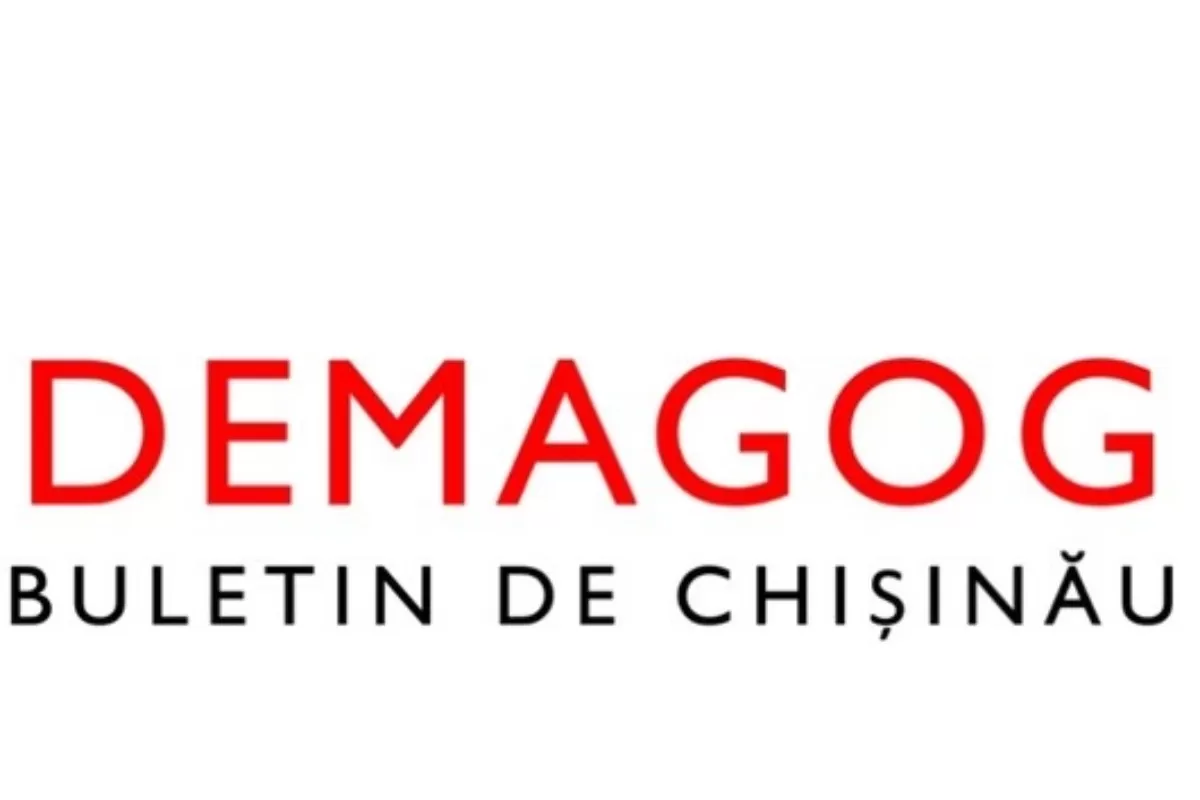
Veridica has debunked fake news about manipulating statistics in favor of Maia Sandu, her alleged links with fugitive oligarchs and her unrestricted use of the Intelligence and Security Service. All this while, we are told that non-governmental organizations (which Maia Sandu and PAS obviously work for) are on the brink of destroying the country, while the current “regime” – another reference to Maia Sandu, despite the fact that the president’s prerogatives are rather limited, and the country continues to be run by the Socialists and their allies – is ready to apply for NATO accession.

The parliamentary election in the Republic of Moldova represents an important stake for Bucharest, for several reasons: its partnership with Chișinău, the existence of thousands of people with double citizenship, etc. Political and non-political actors have got involved in the election campaign which has entered its last week in the Republic of Moldova, considering this Sunday, on July 11, snap elections will take place. A brief overview of some of the latest developments paint a rather interesting picture of direct interests of the Romanian state, but also a number of special ones, more often than not in gray or outright black areas.

According to the media affiliated with the Socialists, 85% of the Action and Solidarity Party candidates in the early parliamentary elections are members of PLDM and the real head of the party is the former prime minister convicted of corruption, Vlad Filat, who is also guiding Maia Sandu. The source of this news is a statement by the communist Vladimir Voronin, who has recently returned to the forefront of politics. Only seven PAS candidates have previously competed on the PLDM lists, but former PLDM members can be found in over a third of the lists of candidates in general. This phenomenon of party-switching characterizes other parties as well. Even communists, for instance, are currently running on the lists of other parties, including some that have diametrically opposed political views.

The West plans on using Moldova against Russia, and its citizens will become cannon fodder, says former president Igor Dodon in a wide interview for Ria Novosti. The Russian news agency basically provides Dodon with a platform for disinformation and spreading fake news, most of which have already been disseminated over the course of the election campaign, both by the local media affiliated to the Socialists, as well as by the pro-government Russian state media: the situation is out of control, the country’s president is responsible for the political crisis and the social and economic chaos, the West is interfering in the domestic affairs of Moldova and plans to rig the election, etc.

Maia Sandu and PAS get massive cash injections from the European People’s Party (EPP), while taking part in this external funding operation are number of national parties affiliated to the EPP, according to a New Europe article promoted by the Socialists and their media outlets. The article contains inaccurate data, provides zero evidence and also picks up on a number of false narratives promoted by Kremlin-linked press institutions, as well as by pro-Russian forces in Chișinău.
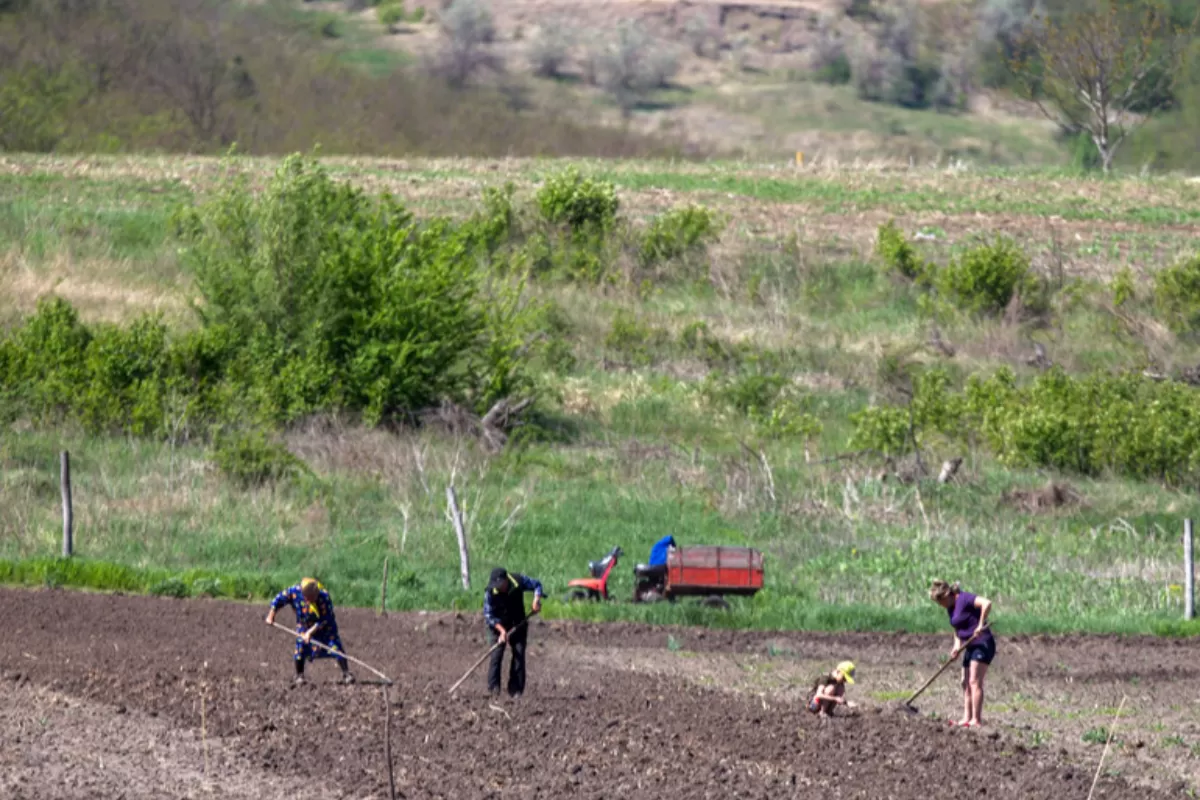
Maia Sandu and PAS intend to give away Moldova’s natural resources to Western powers, allowing them to buy farmland at very low prices, sputnik.md writes, even though neither the president of the Republic of Moldova nor the party she founded have so far made any comments in this respect. The narrative is linked to the liberalization of the land market in Ukraine, a decision which was also the target of fake news disseminated by the Russian and pro-Russian media.

Maia Sandu’s friend, Chancellor Angela Merkel, doesn’t want the Republic of Moldova to accede to the European Union, PSRM-linked media claims, saying that the meeting between the German Chancellor and leaders of states in the Western Balkans is evidence that Moldova doesn’t have any chance of joining the European Union. However, Angela Merkel doesn’t make any reference to Moldova, and the news isn’t in any way tied to the Republic of Moldova. The narrative is aimed at weakening voters’ confidence in pro-European forces, especially in PAS and Maia Sandu, ahead of the parliamentary election of July 11.
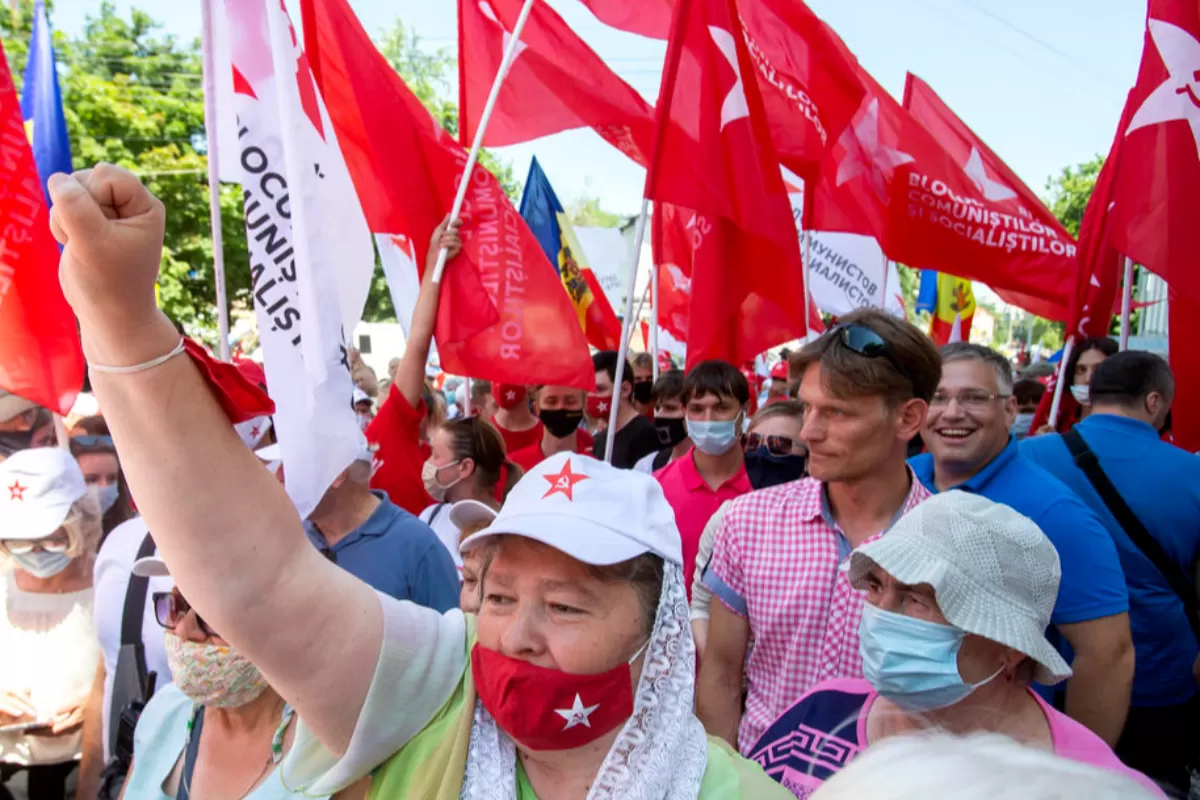
Much like most other election campaigns in the Republic of Moldova, this summer’s campaign for the parliamentary election of July 11 was ridden with disputes which, at times, went way beyond the limits of common decency. We’ve seen controversial figures getting the spotlight, a great deal of disinformation, and we’ve had our fair share of extraordinary and laughable moments. Foreign policy was, once again, a major topic of debate. Less than 30 years since Moldova proclaimed its independence, it’s still unclear whether the country is headed West or East. Another recurring theme in this campaign was the fight against corruption, which has been discussed for years, without seemingly rooting out the weed of corruption that has spread to the point of nearly suffocating the whole country. Veridica has reviewed some of the topics, episodes and characters that grabbed the headlines during this election campaign.

disinformation, manipulative stories and fake news continued to flood the media as usual. Maia Sandu, PAS and the West were again the favorite targets of disinformation and fake narratives. Fake news authors were pretty much unimaginative, as they have been over the course of the entire campaign, resorting to narratives they used before, both in the current campaign, as well as in previous ones: a victory for the right-wing would spell disaster for the country
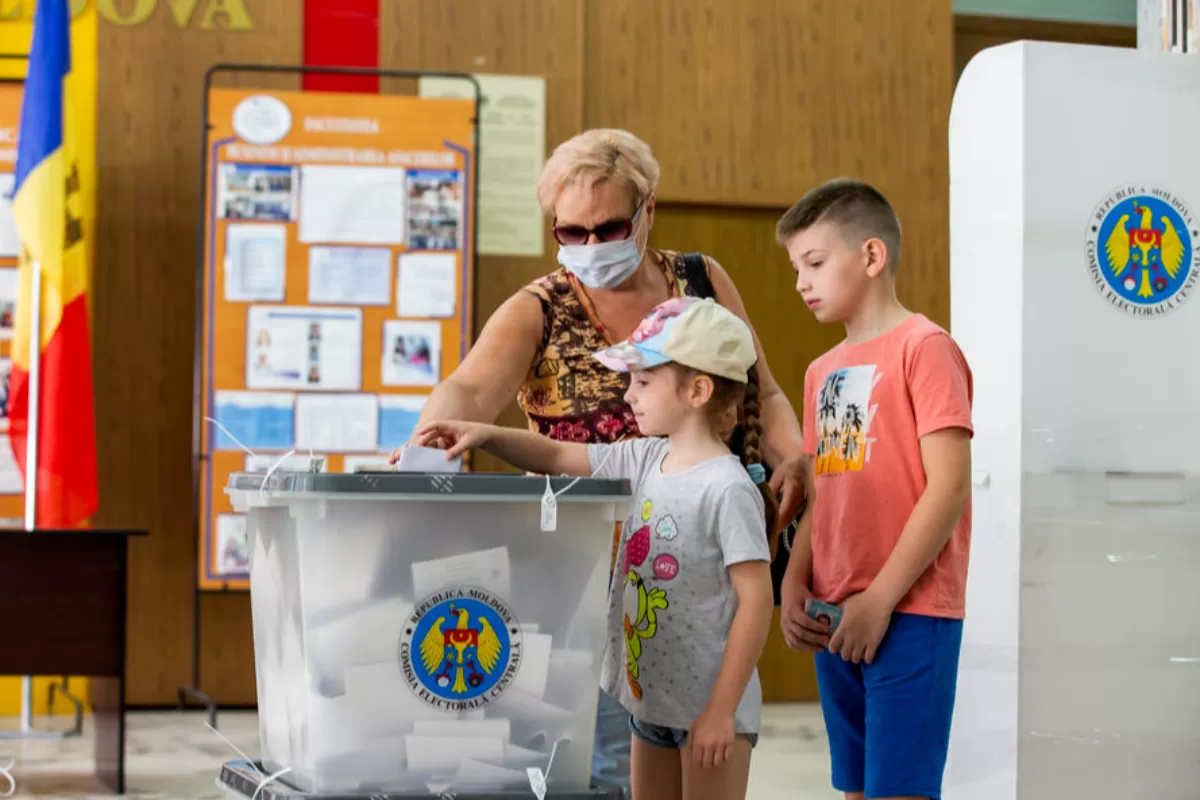
The alleged election fraud, including bribe-giving, was one of the hot topics in the Republic of Moldova on election day. While media outlets siding with pro-European parties revealed alleged cases of bribe reported on the left bank of the Dniester, the pro-Socialist press focused on offenses reported abroad. One the main “arguments” about influencing voters in the Diaspora was a short video filmed by a young girl queuing outside a polling station in Frankfurt, Germany. In the background one can hear a few people talking and laughing, mentioning 50 Euro. A large number of press institutions affiliated to the Socialists carried the piece of news, suggesting the video is evidence that voters got bribed. The person who shot the video subsequently said it was all a joke, and that the media made erroneous assumptions.